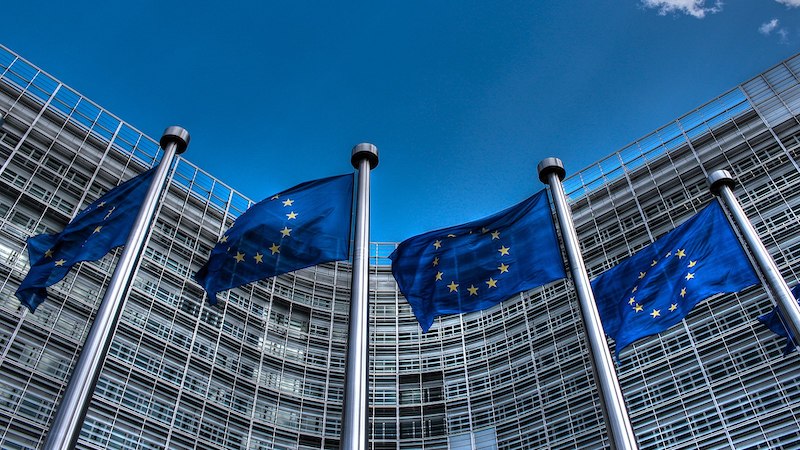The European Union will push for a global pledge at Cop28 to phase out unabated fossil fuels “well ahead of 2050”, EU climate chief Frans Timmermans announced.
The commitment would mean stopping coal power and eliminating emissions from the oil and gas sector, but with only a minimal role for carbon capture, he added.
The EU unveiled its common goals ahead of the climate summit in Dubai this week, at a meeting of the bloc’s environment and energy ministers in Spain.
Speaking at the gathering, attended by Cop28 chief Sultan Al Jaber, Timmermans said the EU wants governments to sign up to a pledge with three main elements: tripling renewables rollout by 2030, better energy efficiency, and an accelerated phase-out of fossil fuels with a “residual” role for carbon abating technologies.
Divisions over carbon capture
The last point refers to the use of carbon capture and storage (CCS), an umbrella term for a range of processes that aim to trap CO2 emissions caused by burning fossil fuels.
CCS is at the centre of a deeply-divided debate. Oil and gas-producing countries and the industry argue it is necessary to extract climate-damaging gases while the world keeps powering activities with fossil fuels.
Campaigners and a host of progressive nations claim it is a loophole for the fossil fuel industry that will prolong the climate crisis.
The Cop28 hosts, the United Arab Emirates, are a big proponent of CCS. In May Al Jaber angered many climate politics watchers when he called for a phase-out of “fossil fuel emissions”, saying that oil and gas will continue to play a role in the foreseeable future.
The Cop28 chief has since softened his stance slightly, calling for an accelerated energy transition that “phases down the use of fossil fuels”.
‘Residual’ role
The EU’s position outlined by Timmermans shows a similar focus on eliminating ’emissions’ but signposts clearer limits to the use of CCS.
“It is important to have a precise understanding of the role of ‘abated fossils’ in a net-zero economy,” the EU climate chief said. “These need to be residual and only in hard-to-abate sectors. And the sector carries the burden of proof in demonstrating this is achievable and proposing credible investment strategies in carbon-abating technologies”.
Agreeing on a definition for ‘unabated’ and on a role for CCS is likely to be one of the defining battles at the climate summit in Dubai.
IEA celebrates energy transition minerals investment, as fears of shortage lessen
Lisa Fischer from the think tank E3G said Timmermans “rightly shifts the focus on the need to define ‘abated fossil fuels’ to avoid countries hiding behind a so far little progressed pipedream of carbon capture”. But she also added that the focus should be on “phasing down fossil fuel use, with some clear pre-2050 milestones”.
According to forecasts by the International Energy Agency (IEA), coal, oil and gas must drop respectively by 90%, 80% and 70% between 2021 and 2050, in order to reach net zero by mid-century.
Tripling renewables
The EU’s other big pledge ahead of Cop28 is on tripling the annual rate of deployment of renewable energy between now and 2030.
Energy Commissioner Kadri Simson said the proposal is for a “voluntary, non-binding pledge” for other countries to sign up to.
The target is based on an IEA assessment. The organization said that the world currently has about 3,300 GW of renewable energy capacity. In order to be in with a shot of limiting global warming to 1.5C, about 1,000 GW should be added every year to 2030, roughly tripling the total amount to 10,350 GW.
The renewables pledge is expected to cause less friction in Dubai. Sultan Al Jaber is strongly backing the proposal, which has already attracted support from the US, Chile, Colombia and representatives of small island states.
